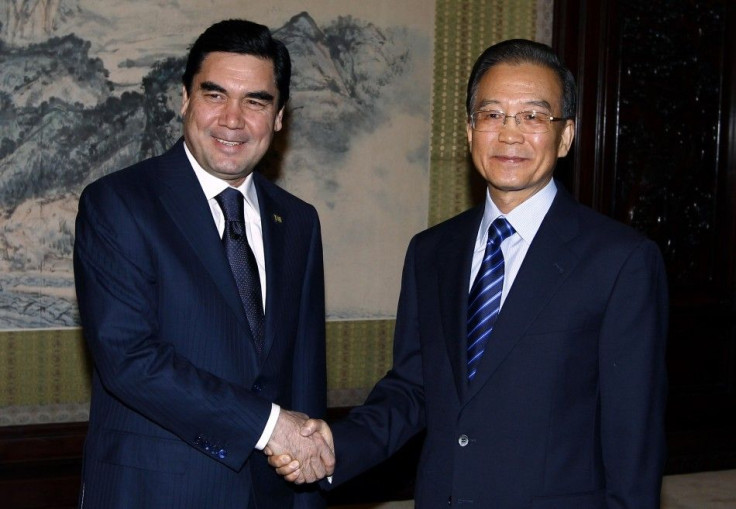HIV-Positive Men Urge China Premier to End Discrimination

BEIJING [Reuters] - Three prospective school teachers have appealed to Chinese Premier Wen Jiabao to end discrimination against people with HIV after they said they were wrongly denied teaching jobs because their employers discovered they had the virus that causes AIDS.
The landmark petition, delivered Monday by mail to the State Council Legislative Affairs Office, is a bold test of China's promise to enforce the rule of law.
The three signatories had filed separate lawsuits against their local governments after provincial education bureaus rejected their applications for teaching jobs because mandatory blood tests revealed they were HIV positive, even though they had passed written tests and interviews.
The three men had hoped to persuade the courts that a five-year-old law supposed to protect the employment rights of people with HIV should supersede local regulations that prevent the hiring of HIV-infected civil servants.
Two courts in China have ruled against the two men who filed lawsuits against their governments in Anhui and Sichuan in 2010.
In the third lawsuit filed in Guizhou, the judge told the plaintiff in October the courts will not accept the lawsuit and that the plaintiff should ask the local government to solve it, Yu Fangqiang, whose Nanjing-based organization, Tianxia Gong, advocates for people with HIV, told Reuters.
We know that in a country like China that has 1.3 billion people, 740,000 people who are infected with HIV is just a small portion of the population, said the petition, a copy of which was seen by Reuters.
The voices to defend the employment rights of people with HIV tend to be drowned out by the majority's sense of fear.
But we also know that the adherence to the country's rule of law and the equality of its people is the country's soul and is the backbone of the country's modernization, it said.
Every Chinese citizen and every department will undoubtedly benefit from this and will not be subject to the threat of the unlawful deprivation of their legitimate rights and interests.
Beijing was initially slow to acknowledge the problem of HIV/AIDS in the 1990s and had sought to cover it up when hundreds of thousands of impoverished farmers in rural Henan province became infected through botched blood-selling schemes.
But the government has since stepped up the fight against it, spending more on prevention programs, launching schemes to give universal access to anti-retroviral drugs to contain the disease, and introducing policies to curb discrimination.
The virus is now primarily spread in the country via sexual contact.
In a country where taboos surrounding sex remain strong and discussion of the topic is largely limited, people with HIV/AIDS say, however, they are often stigmatized.
Yu said that discrimination of people with HIV, especially in civil service recruitment, is still a very big problem.
People in China living with HIV and AIDS are routinely being denied medical treatment in mainstream hospitals due to fear and ignorance about the disease, according to a study released by the United Nations' International Labor Organization (ILO) in May.
The petition, which was sent to the government office that helps to draft and oversee the implementation of laws, comes ahead of World AIDS Day on December 1.
The signatories to the petition said they had noted that Wen had previously shown his concern for people with HIV on the day, by shaking the hands and embracing HIV-infected people.
(Additional reporting by Beijing Newsroom, Editing by Ken Wills and Sugita Katyal)
© Copyright Thomson Reuters 2024. All rights reserved.






















